Samsung and LG’s Shared Vision for OLED
On the first day of OLEDs World Summit (October 27-29) held in Berkeley, USA, Samsung Display and LG Display gave their talks back to back. Samsung Display’s Vice President Chang Hoon Lee and LG Display’s Joo Soo Lim discussed their thoughts on OLED under the titles of ‘The Future of OLEDs’ and ‘A Future Game Changer’ respectively.
Samsung Display’s Lee, who gave his presentation first, reiterated Samsung Display’s leadership position in the mobile market and how Samsung Electronics’ recent mobile display reflects this. Comparing RGB pixel structure and their own diamond pixel structure, Lee drew comparison between human eyes and diamond pixels; due to cell distribution in eyes, humans are more sensitive to green colors and that diamond pixels reflect this by having twice as many green subpixels as blue and red ones. The diamond pixels also maximize the sub-pixel packing and increases the PPI.
Regarding the advantages of OLED display, Lee gave 2 examples using Samsung Electronics’ latest smartphone models. Utilizing the fact that selective control of each pixel is possible in AMOLED displays, Samsung provided Vision Aid to help people with color blindness. OLED’s ability to achieve total black is used in Super Dimming function where screen brightness can be reduced to 2nits to be used in the dark environment.
LG Display’s Lim revealed that an adult in the US spends 9 hours 40 minutes a day on average looking at one form of display or another. Highlighting the need and importance of quality display, Lim also discussed advantages of OLED display over LCD such as total black, 3D effects, and color gamut.
As the future OLED display, Both Lee and Lim placed slightly more emphasis on flexible (plastic) OLED than transparent or mirror display. Samsung Display discussed requirements necessary for a successful flexible display in more depth touching on the need for suitable cover window, flexible touch (sensor), flexible encapsulation, and flexible backplane. On the other hand, LG Display discussed flexible display’s design freedom and its influences on the wearable, mobile, and automotive markets. Lim also placed much importance on how flexible OLED can be used in virtual reality display market. The 2 speakers ended their talks affirming the need for new display market and innovation through OLED technology and new applications.
The presentations given by the 2 apparent leaders in the OLED display industry were remarkably similar with both speakers underlining major points of OLED in broad strokes. The need for solutions for future OLED, whether it be flexible, transparent, or mirror display, through innovation and technological advances is an absolute truth if not maybe too obvious. There also may be some comfort to be had in the shared vision within the OLED community. However, it is also a fact that numerous attendees of the conference commented on the similarities of the 2 presentations and the lack of any surprises.


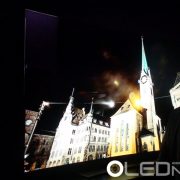
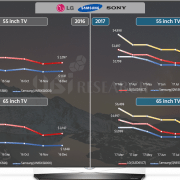
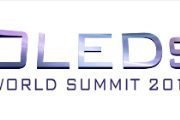
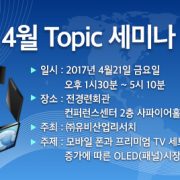

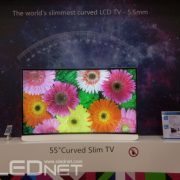



댓글을 남겨주세요
Want to join the discussion?Feel free to contribute!